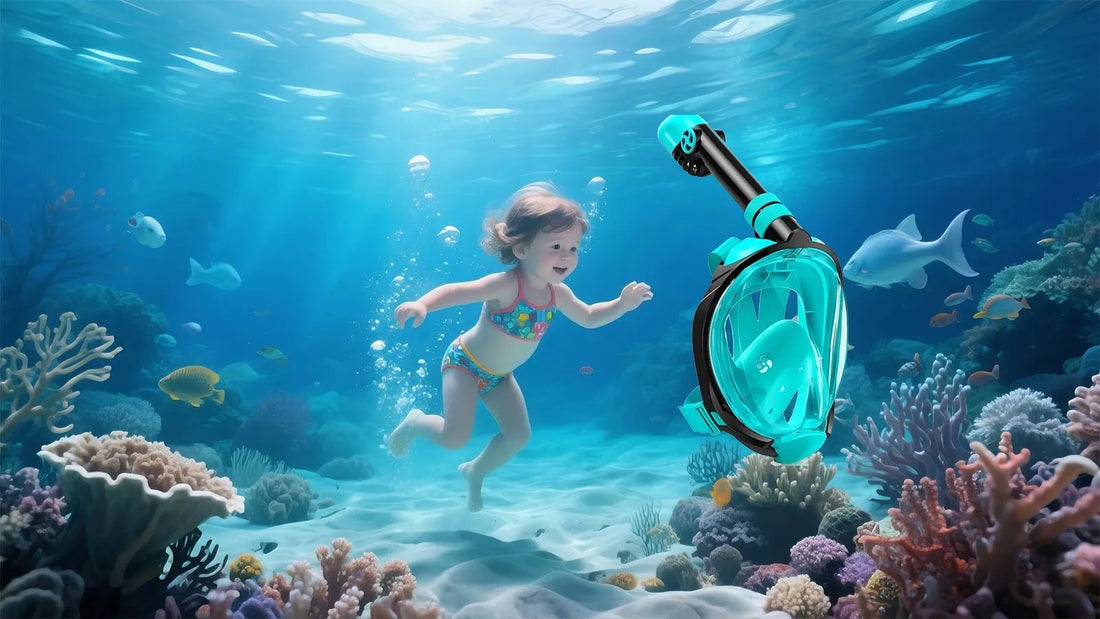Snorkeling is often seen as a thrilling way to explore the underwater world, but what if you can't swim? Many people assume that snorkeling is off-limits for non-swimmers, but this isn't necessarily the case. With the right precautions and tools, even those who aren't confident in the water can enjoy this unique experience. Let's dive into the details and explore how snorkeling can be accessible to everyone.
Understanding Snorkeling Basics
Snorkeling involves swimming on the surface of the water while using a snorkel to breathe. It allows you to observe marine life and coral reefs without the need for heavy scuba gear. While swimming skills can enhance the experience, they aren't always a strict requirement. The key is to feel comfortable in the water and to use equipment that ensures safety.
Essential Equipment for Non-Swimmers
For non-swimmers, certain pieces of equipment can make snorkeling more manageable. A life jacket or flotation device is crucial, as it provides buoyancy and keeps you afloat. A full-face snorkel mask can also be helpful, as it allows you to breathe naturally through both your nose and mouth. Additionally, using fins can help with stability and movement, even if you're not actively swimming.
Choosing the Right Location
Not all snorkeling spots are created equal, especially for non-swimmers. Calm, shallow waters with minimal currents are ideal. Look for locations with clear visibility and a sandy bottom, as these are generally safer and more beginner-friendly. Many tour operators offer guided snorkeling trips specifically designed for non-swimmers, providing extra support and supervision.
Safety Tips for Non-Swimmers
Safety should always be the top priority when snorkeling, especially if you're not a strong swimmer. Always snorkel with a buddy or guide who can assist you if needed. Practice using your equipment in a controlled environment, such as a pool, before heading into open water. Stay within your comfort zone and avoid venturing too far from the shore or boat.
Building Confidence in the Water
If you're nervous about snorkeling, consider taking a basic swimming or water safety course. Even a few lessons can boost your confidence and make you feel more at ease in the water. Familiarizing yourself with the snorkeling gear and practicing in shallow water can also help reduce anxiety.
Alternative Options for Non-Swimmers
If traditional snorkeling still feels daunting, there are alternative ways to explore the underwater world. Glass-bottom boat tours and underwater observatories allow you to see marine life without getting wet. Some destinations also offer guided snorkeling experiences with flotation devices and professional supervision, making it easier for non-swimmers to participate.
Benefits of Snorkeling for Non-Swimmers
Snorkeling can be a rewarding experience for non-swimmers, offering a chance to connect with nature and discover a new hobby. It's a low-impact activity that can be enjoyed by people of all ages and fitness levels. With the right preparation, snorkeling can open up a world of underwater wonders, even if you're not a strong swimmer.
So, can you go snorkeling if you can't swim? The answer is a resounding yes! With the right equipment, location, and safety measures, snorkeling can be a safe and enjoyable activity for non-swimmers. Don't let a lack of swimming skills hold you back from exploring the beauty beneath the waves. Dive in and discover the possibilities today!

